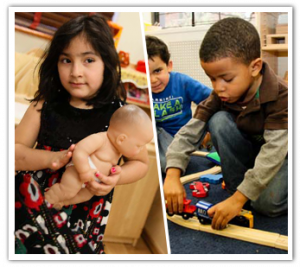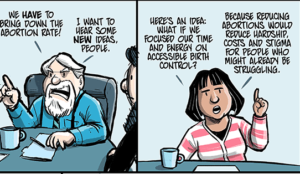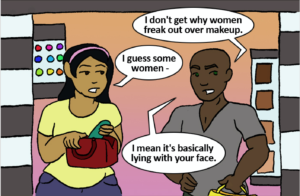
Source: The Gaggle
Whether you and your loved one are three hours away or three time zones away, you are in a long-distance relationship.
Chances are, you have already Googled such phrases like “making it work long distance” and “long distance cheating.”
Good.
Your hypochrondriac approach will serve you well, because long distance relationships are tough. Whoever told you that long distance relationships are easy lied to you.
On the flipside, you also should not believe the naysayers: Not all long distance relationships fail.
In fact, some argue that long distance relationships give you a unique training.
I had the wonderful life opportunity to teach in Hawai’i. This, however, made my romantic life that much more difficult, because my geographic location only increased my long distance relationship experiences.
And Hawai’i is far from the continental United States. It takes six hours just to fly to the west coast. But, of course, I couldn’t settle for the west coast. Both my long distance partners lived on the east coast. That’s right: a six hour time difference and a fourteen-hour flight – and let’s not forget about layovers.
One of these long distance relationships did not make it, because we did no research and just jumped right in. “Love is all you need” is what we said. (No joke. Verbatim. Yeah, that relationship ended really well. Not.)
The other long distance relationship did work, and I am still with my boyfriend. We live together in the same town and in the same apartment. (Fist pump, because we just celebrated three-and-a-half years in October. More on celebrations later.)
So I have quite a lot of advice about long distance relationships. Gather round.
1. Talk about Your Future before Discussing a Future Together
This is very important. (That’s why it’s the first piece of advice. Do this first.)
Where do you see yourself in the near future, both geographically and professionally? Do you want to get married and have children? Do you want to go backpacking in Asia for a year when you turn twenty-five? Do you foresee some huge life-changing (and wallet-depleting and socially draining) event like law school in the future?
This seems like a lot. I know.
But long distance is hard work!
You have to know that other person – like, really know that person.
When all you have is a voice at the other end of the phone, you need to know who that person is and everything they want to be, because that will hold you together at the end.
For a lack of better words, you need to know that they are “worth it.”
Next, when will the long distance end? It is important to have a finish line in sight, because you need to look forward to an end.
If you are bound by a job, school, or other obligation, when will one of you be free to relocate? Who can or is willing to relocate?
This is a tough conversation, but it forces you both to think about the relationship’s future in realistic terms.
I want to preface this conversation by recognizing that our long-distance relationship was unique in that we were not bounded by obligations beyond one year. (He was in a one-year graduate program, and I was a school teacher who was able to move at the end of the school year.)
If you are in a long distance relationship or contemplating a long distance relationship where a reunion date is uncertain (due to very serious commitments such as medical school and service in the military), this conversation is more crucial than ever.
I’ve seen long distance relationships end bitterly because people avoid this conversation. You don’t want to find out six months into the relationship that neither one of you is willing to move and – oh wait – you want to live on the east coast and I never want to leave the west coast? (True story.)
2. Trust One Another and Communicate Often
This sounds like a no-brainer, but it’s not.
Long distance relationships can make you irrational and suspicious.
Why?
Because you can’t see the other person on a regular basis. Hell, even people in close-proximity relationships have trust issues. Long distance only magnifies these fears.
Trust is the knowledge that the other person cares deeply for you. This other person cares so much for you that they will never intentionally hurt you. Trust sounds a lot like blind faith, but I think it is a two-way street, and it starts with communicating often.
This does not mean that you have to check in on one another and tell your partner exactly what you are doing at all times.
When I was teaching, I would send quick texts throughout the day to just share what was going on: “The kids are crazy today” or “Ahh, two more days until I see you again!”
Some couples like to Skype. I find it awkward. Find what works for you.
For example, my boyfriend and I started a year-long project where we sent each other music videos of songs that reminded us of one another.
This was obviously our way to say Hey, I was thinking about you, but underneath it all, our constant communication also said Hey, trust that I am thinking about you even if we are not together.
3. Travel to New Places Together
This piece of advice was born from necessity.
Just imagine traveling to and from Hawai’i from the east coast every month. Not smart. So, very often, we met in the middle.
Traveling to new places gives you a change of scenery. Neither one of you lives there, so you’re not thinking about work, laundry, chores, and so on.
Most importantly, traveling builds your “relationship muscle.” In other words, traveling can help your relationship grow further.
Traveling to a new place can be stressful.
I repeat: Traveling to a new place can be stressful.
What kind of couple are you under stress? Do you feed off of one another? Are you both laid back? Is one of you a problem solver? Are you more about big ideas or details?
I come from a stressful family. We fight on every road trip. We talk about politics and religion at the dinner table. So it was interesting in Seattle when I realized I’d lost my wallet on the airplane!
What happened?
My boyfriend was calm and not judgmental, so it made me calm. He literally made me a better person in that situation. (Interestingly, he told me later that he was just feeding off of my calm energy.)
You build your “relationship muscle” by, together, being better people.
4. Have Your Own Lives
It’s easy in any relationship to lose yourself.
It is especially difficult in a long distance relationship to remember that you are your own person.
When you can’t see the other person every other day, you start thinking that you can’t live without them. (False.) Then you develop trust issues: I’ll bet they aren’t thinking about me as much as I am about them. (Also false.)
Start a hobby or take a class!
My hobby was HBO in the beginning, but that was not rewarding. So I took an online Women’s Studies course, because I was always interested in Women’s Studies and never took a class. I had homework every week, where I read interesting articles and wrote papers I was proud of.
I also had lots to share when we talked on the phone every night.
It seemed like every week we were talking about some current event or one of my readings, and we really got to know one another.
In fact, taking that online course led me to take another and even apply to graduate school. Throughout this whole experience, my boyfriend was very supportive.
Again, these experiences can build that “relationship muscle” when, together, you become better people.
5. Celebrate (and Evaluate) Your Relationship on a Regular Basis
Here’s the celebration I promised, but I snuck in that evaluation part.
Celebrating your relationship isn’t just about going out to dinner every month and saying “Hey, we’re still together! Happy Four Months!”
Celebration is about not taking each other for granted.
In a long distance relationship, it is important to celebrate all the good in your relationship. This means explicitly having a conversation about how you appreciate the other person and how they enrich your life.
On the flip side, these milestones are also opportunities to evaluate your relationship.
Inspired by POTUS, we call this the “State of the Relationship” conversation.
Ask each other: When was the last time we argued? What was it about? How could we have prevented it? How can we grow from our experiences and support one another? What are our goals for the near future? How can we, together, be better people?
***
Before you know it, the long distance will be over and you will have both grown together as if you were in a “real” relationship.
I’m just joking about the “real” relationship part, of course. By now you have probably figured out that Advice for a Healthy Long Distance Relationship sounds awfully similar to Advice for a Healthy Relationship.
Yep. Pretty much.
Because in any healthy relationship, you should be honest and communicative, be open about your futures, support each other to be better people, and celebrate/evaluate your relationship on a regular basis.
Distance should not change that.
Want to discuss this further? Login to our online forum and start a post! If you’re not already registered as a forum user, please register first here.
Amy Sun is a Contributing Writer for Everyday Feminism. She currently lives in DC and rues cold weather. Amy coaches new teachers in the classroom by day and teaches graduate-level classes by night. She watches at least two cat videos each day, loves to talk about zombie apocalypse escape plans, and needs to get paid for her people-watching (because she is very good at it). Read her articles here.
Search our 3000+ articles!
Read our articles about:
Our online racial justice training
Used by hundreds of universities, non-profits, and businesses.
Click to learn more




















